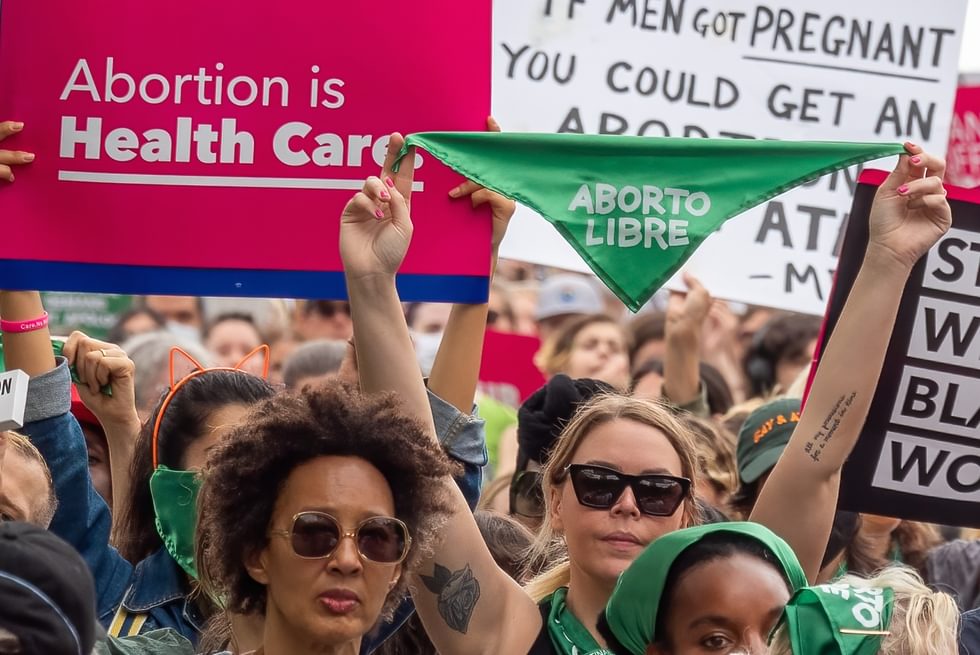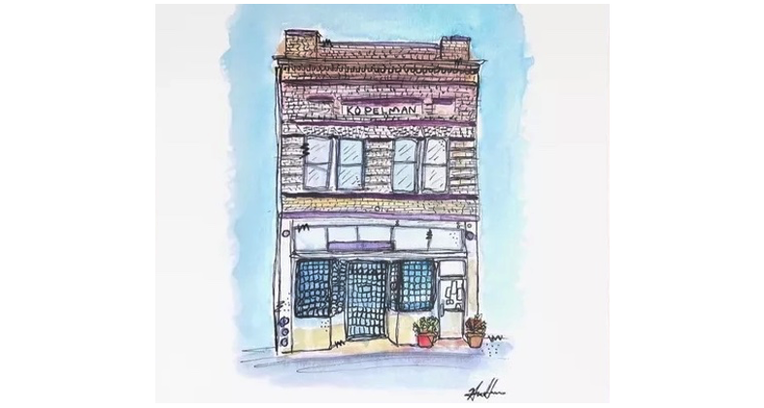Abortion, You Betcha!
From the Series: After Roe
From the Series: After Roe


Shortly after Donald Trump was elected president in 2016, I contributed a piece to a Hot Spots forum examining The Rise of Trumpism. I wrote that “I remain puzzled by the absence of discussion of abortion politics in this election, given the half-century of battles that have been part of both backroom politics and media spectacle,” even as red states nationwide were mobilizing voters by drafting “trigger laws” criminalizing abortion should Roe v. Wade be reconsidered by the Supreme Court. Since the June 24, 2022, Supreme Court Dobbs v. Jackson Women's Health Organization decision overturning fifty years of precedent established with the January 22, 1973, Supreme Court Roe decision legalizing abortion, it has become stunningly clear that reproductive politics played a significant role in delivering Trump’s presidency.
At the 2016 Faith and Freedom Coalition, Trump held up a list of potential justices, proclaiming “These judges are all pro-life!”; this move foreshadowed his three ultraconservative Supreme Court appointments that enabled the vote that upended the stare decisis doctrine to stand by historically settled law. The 2022 decision has created a dividing line in a new American civil war over women’s reproductive rights, as the question of the right to an abortion devolves to states. At the time of this writing, abortion is legal and uncontested in only twenty states and the District of Columbia.
I have been following what has been happening on the ground at the Red River Women’s Clinic (RRWC) in Fargo, ND, the only abortion clinic in the state, founded in 1981. I began my doctoral research in Fargo shortly after it opened, following the pro-choice and pro-life activists there as they clashed over the public presence of abortion services in their small red-state city. The fights continue into the present in ways that are remarkably similar to the scenes I witnessed forty years ago and described in Contested Lives: The Abortion Debate in an American Community (1989). Over time, the culture wars around the clinic in Fargo and elsewhere escalated, a progression I chronicled in the 1998 revised edition of the book, analyzing how violence against the clinic increased with the growing masculinization of the antiabortion movement and the emergence of protest groups, such as the Evangelical Christian Operation Rescue or the radical Catholic Lambs of Christ, that harassed the Fargo clinic as well as others, leading to widespread decline in clinic-based abortion services.

In 2017, Jane Bovard, the extraordinary woman who founded and directed the Fargo clinic for thirty-six years, sold her practice to an equally intrepid colleague, Tammi Kromenaker, who also inherited Bovard’s “Midwestern feminism” (Ginsburg 1989) in defense of North Dakota women’s need for abortion care. Her outspoken defense of the Red River Women’s Clinic (RRWC) brought Kromenaker to national attention in the wake of Dobbs. (The clinic sells t-shirts with an outline of the state of North Dakota surrounding the words “Abortion, You Betcha!” thereby capturing the forthright Upper Midwestern style that Kromenaker embodies.) The clinic has taken on iconic status in the media as an outpost of reproductive rights, evident in titles such as The Last Abortion Clinic in North Dakota Gets Ready to Leave, in the July 13, 2022, issue of The New Yorker. Kromenaker, with her short blonde bob and straightforward demeanor, has appeared on CNN, MSNBC, and other liberal media outlets.

Her visibility had an impact. On June 23, a clinic supporter launched a modest GoFundMe campaign to raise $20,000 for badly needed support for the clinic’s move across the Red River to blue-state Minnesota, to Fargo’s sister city of Moorhead. The day it launched, the site offered these words: “The Supreme Court has just struck down 50 years of precedent protecting bodily autonomy. I’m increasing the fundraising goal to reflect the urgent need set by this decision. The clock to move the Clinic starts now.” As word of the fundraiser spread across North Dakota, the country, and beyond, it generated unanticipated support: “The original goal was for $20k last night and [was] $250k by noon today.”
By August, the GoFundMe page had raised over one million dollars not only to support the expected costs of a new building but also to support women who might not otherwise be able to access an abortion. As more and more people heard Kromenaker speak about the clinic and contributions poured in, updates on the site posted by “North Dakota Abortion Defender, Organizer” conveyed the profound appreciation experienced by the embattled clinic staff:
Words of gratitude simply can’t be formed. As the only abortion clinic within hundreds of miles, a move across the border to stay open and serve the people in our region will be made possible because of an outpouring of love and support . . .
While this abhorrent SCOTUS decision has increased the stress, workload, and undue burden of patients, abortion providers, abortion funds, and practical support networks; it is truly warming to see the swift and grand response to protect abortion access and a beloved independent clinic.
By early August, as rumors spread regarding the move, a local group of “prayer warriors” called 40 Days for Life—a grassroots antiabortion movement—gathered to sing, pray, and hold signs outside the new home of the RRWC. Pro-Life Action Ministries, a group based in St. Paul that brings together multiple Catholic dioceses, Lutheran Church-Missouri Synod, and 40 Days for Life, vowed to mobilize against the clinic, which (for now) remains legal. Simultaneously, city and state officials as well as Minnesota Senators Amy Klobuchar and Tina Smith welcomed the clinic. Kromenaker commented that while she mourned leaving North Dakota, “It is refreshing to be supported and lifted up rather than to face hostility.” At the clinic’s August 10 opening in its new location, escorts wearing rainbow vests and carrying matching umbrellas stood ready to walk patients inside while a handful of “prayer warriors” demonstrated. The performance of positions bears an uncanny resemblance to the social drama that I encountered weekly at the Fargo clinic in the early 1980s; my memories are haunted by political nostalgia for that time when the legal status of abortion clinics seemed assured, even when contested and subject to violence. While women from the Upper Midwest seeking reproductive care can cross state lines for now, the lurking threat of a nationwide abortion ban casts a long shadow. The sense of being under siege is hard to shake.
Ginsburg, Faye D. 1998. Contested Lives: The Abortion Debate in an American Community. Second edition. Berkeley: University of California Press.